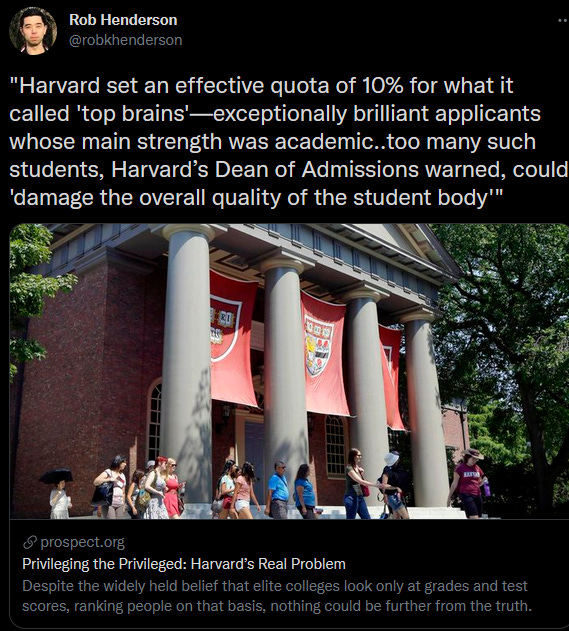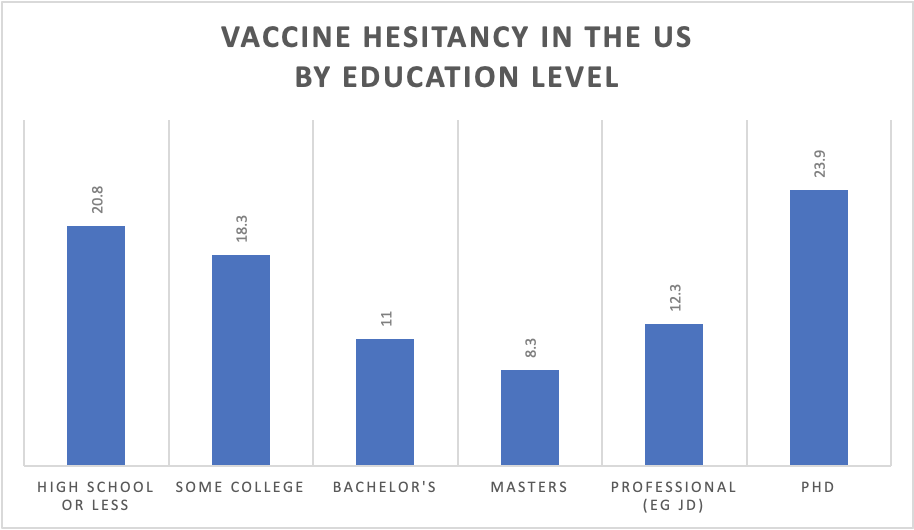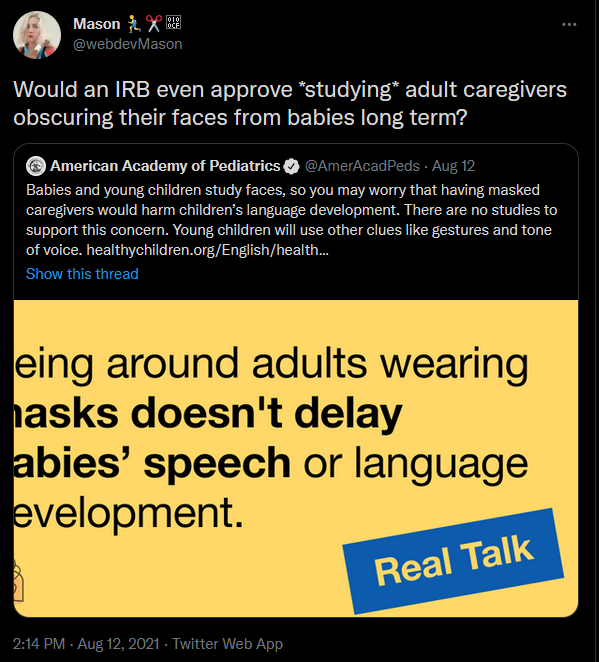Links For August
[Remember, I haven’t independently verified each link. On average, commenters will end up spotting evidence that around two or three of the links in each links post are wrong or misleading. I correct these as I see them, and will highlight important corrections later, but I can’t guarantee I will have caught them all by the time you read this.]
1: Ever wonder what happened to the Borgias after the Renaissance? Apparently they’re still around, and one of them - Rodrigo Borja Cevallos - was president of Ecuador back in the 90s. A lot of the Spanish branch of the family (who spell their name “Borja”) seem to have ended up in Latin America, which makes me curious whether Cuban-American immigration economist George Borjas is related too.
2: It’s long been a YIMBY talking point that building more luxury or market-rate houses will indirectly free up affordable housing, as richer people move out of cheaper houses into costlier ones. A new paper confirms and quantifies this effect: “Constructing a new market-rate building that houses 100 people ultimately leads 45 to 70 people to move out of below-median income neighborhoods, with most of the effect occurring within three years.”
3: This is a bit Twitter drama-y:
…but I’m including it because I’m increasingly taking Nate’s position literally. I’ll admit that my recent collection of FDA rants wasn’t as sober as I’d like, and that my nod to cost-benefit analysis was briefly pointing to the existence of one cost-benefit analysis paper that supported my point. But a lot of people just never seem to consider it at all, and I’m starting to notice this more and more everywhere, kind of like a missing developmental milestone thing. I realize I sound arrogant and annoying here, but I guess I’m just urging people to notice when there’s a big hole at the point in an argument where a cost-benefit analysis should be.
4: The First and Second Amendments to the US Constitution are big deals, while the Third Amendment (the government can’t make people quarter soldiers in their houses) languishes in obscurity. Until now! ÞALA (Third Amendment Lawyers Association) has filed a brief against the eviction moratorium. They argue that an eviction moratorium means the government is making landlords quarter people nonconsensually, and “given the size of the population at issue, some of these tenants are bound to be soldiers”, so the moratorium is a Third Amendment violation. This is interesting because as far as I can tell ÞALA started out as (still is?) a joke group of lawyers making fun of the powerful First Amendment and Second Amendment lobbies. So as best I can tell these are real lawyers in a joke organization filing a joke brief in a real case. Indeed do many things come to pass.
5: I talk a lot about predictions on here, so here’s the projected results of the 2060 presidential election (source):
 Related: “the metacontextual hyperamericas to which we have never not owed our allegiance”
Related: “the metacontextual hyperamericas to which we have never not owed our allegiance”
6: Researchers at Oxford and Aalto study where people think it’s appropriate for other people to touch them; at some point, this got transformed into terrible maps that serve as a parable against…overfitting, maybe?…I don’t even know…definitely a parable against something. “As a man, you are tentatively okay with your hands being touched by your mother, father, sister, or brother. You actually quite like your hands being touched by your uncle. You are implacably opposed to your hands being touched by your aunt.” And so on.
7: Fiiine, I’ll link to the creativity test that’s gone viral on Twitter recently. You choose ten words, and it grades you as more creative the more different all ten are from each other on some measure of semantic distance. And in case you’re looking for a way to cheat, you can always do something like this:
8: H/T Stephan Guyenet: meta-meta-analysis finds that “there is scant scientific evidence that low-[glycaemic index] diets are superior to high-[glycaemic index] diets for weight loss and obesity prevention.”
9:Quillette has a kind of snarky autopsy of the “insect apocalypse” idea, ie the concern that insect populations had been dropping precipitously over the past few years for some kind of environmental reason and maybe portended some larger collapse. Some more recent surveys have found about the same number of insects as ever, and I think the current consensus is that we are not generally running out of bugs. The article makes a pretty predictable case about “alarmism” and the media treating this irresponsibly. I’m prejudiced against listening, because I believed this was worth worrying about when the first round of studies came in, but this is still a great into-the-weeds description of a scientific controversy and how it eventually got (mostly) resolved.
10:Why are there only two sizes of sand dune?
11: Noah Smith on why China is smashing its tech industry (where “tech” means “consumer software”). The two leading theories seem to be “the government is concerned that tech could become an alternate power center and wants to kill it” and “the government thinks it’s better to have a normal industrial economy that manufactures products, instead of whatever sort of app-and-social-network-based monstrosity we seem to be getting here in the US, and it’s gambling that it can prevent this transition without also stopping the beneficial type of techno-economic growth”. The second theory is at least a little sympathetic, but I can’t help but be reminded of some of the discussion of how planned economies are great at catchup growth and terrible at frontier growth because the government can’t pick winners or losers very well without knowing what it’s going for (see eg here and here) - I guess China isn’t very concerned about this.
12: Kelsey against degrowth. Some strong Matt Yglesias “actually, good things are good” energy here. This isn’t meant as a criticism. So many journalists are limited to “what if bad things were good” that the “actually, good things are good” articles are a breath of fresh air.
13: This month in wacky Chinese propaganda (source):
14: “Massive new employment discrimination study” tries to quantify levels of gender and race discrimination by industry. IIUC it finds no overall gender discrimination (some industries/firms favor one gender over another, but it tends to cancel out). People with distinctively black names are about 10% less likely to get callbacks overall than people with white names, eg 22% vs. 20% (though remember that distinctively black names - eg “Antuan”, “Lakisha”, etc - might be a poor proxy for the experience of the average black person). Some firms seem clearly more racist than others. All these numbers seem lower than some other studies (eg here) and I haven’t looked into them enough to figure out why.
15: Seen on Twitter:
 Also, someone replied with an urban legend that Russian revolutionaries who were asked to pledge allegiance to the Constitution believed that “Constitution was the wife of Constantine”.
Also, someone replied with an urban legend that Russian revolutionaries who were asked to pledge allegiance to the Constitution believed that “Constitution was the wife of Constantine”.
16: Michael Tracey is the only person I’ve seen do anything that could almost sort of be described as supporting Cuomo in all this, so I guess give him a read.
17: Is it true that, as GK Chesterton claimed, people who don’t believe in God will believe in anything? IE that Christianity fills a useful religion-shaped-hole in people’s heads, and so non-religious people are easy prey for cults, conspiracy theories, etc? I hear this a lot, but here’s a study finding that church-goers were more likely to believe in QAnon, even after “adjusting for confounders” (remember, this is hard and doesn’t always work). The same article notes that “white evangelicals” are more likely to believe in vaccine-autism connections, moon landing fraud, etc - although I find this less convincing than I would if they just gave me the church attendance statistics without bringing race and denomination into it.
18:The Fantastic Art Of Vsevolod Ivanov, a conspiracy theorist who paints pictures of his imagined Russian Atlantis:
19:Here is an unsourced claim that “people with colorblindness report lasting visual disturbances from microdosing [psychedelics]” - does anyone know more about this or why it would be true?
20:How are resources in effective altruism allocated across issues? Most of the money goes to normal causes (eg global health) but most of the people go into meta-level concerns and weird causes (eg AI risk). Probably makes sense in the context of which problems are money-constrained vs. people-constrained and what the rest of the world is doing. Total amount of resources is probably on the order of $400 million/year and 2,000 highly engaged people.
21: Claim: Harvard has a quota on smart people. Not a very high quota, either:
Source is here; the article talks about how Harvard could become more equitable, though I’m confused by some of its thought process. For example, it says that Harvard is more than 10x more likely to admit students from families in the top quintile of the wealth distribution than the bottom quintile and this is “ not because there are too few low-SES students who qualify academically” - but then suggests the solution is affirmative action for poorer students, which seems worse than trying to identify and eliminate whatever biases favor the rich. While Harvard admissions reform would be welcome and important, it’s a sideshow to the more important task of de-emphasizing the college system more generally. Why should admission to a handful of private institutions that admit people for stupid reasons determine everyone’s future life course, anyway?
22: From Unherd: are PhDs really the demographic least likely to get vaccines?
One strong criticism: this was a Facebook survey where people selected their education level. Only 2% of Americans have PhDs, so if another 2% of Americans are trolls who pretend to be PhDs on Facebook, that could swamp any real signal (see the third section here for more). But I’m tempted to accept this at face value because of this table (Table 3 in the document):
It looks like in January, PhDs were one of the more pro-vaccine demographics, and then this shifted very gradually as everyone warmed up to vaccines. This suggests that it’s not that PhDs are wrong-er than everyone else, just that the ones who are wrong are more stubborn about it - which fits my impression of PhDs just fine.
23: Related, I guess: Philippe Lemoine criticizes more lockdown studies.
24: A picture of Baghdad as it looked c. 800 AD (source):
25: More Twitter drama that I nevertheless think is genuinely important:
Mason’s objection is fair, but I have a deeper one. The usual public health MO is to ban everything until there are studies proving it’s okay (eg Omegaven, COVID testing). But when something is popular enough, then the burden of proof shifts to opponents - are there any studies absolutely proving it’s bad? (Mason was able to find one weakly suggesting it was bad in animals, but of course this isn’t proof).
One of the most important things I got from the Rationalist Sequences was what Eliezer describes as:
…a fact of life that we hold ideas we would like to believe, to a lower standard of proof than ideas we would like to disbelieve. In the former case we ask “Am I allowed to believe it?” and in the latter case ask “Am I forced to believe it?”
The medical establishment held Omegaven to an “am I forced to accept this?” standard, and infant caregiver masking to an “am I allowed to accept this?” standard. Both are “evidence-based” only in the sense that some theoretical overwhelming level of evidence could change them. I support letting the infant caregivers mask based on a standard of “we’re sometimes allowed to use common sense to say that things are okay even if we don’t have studies proving this” - but I feel like most of our other health regulations are still using the opposite decision process.
26: The Cox-Zucker machine is an algorithm for determining “if a given set of sections provides a basis for the Mordell–Weil group of a [certain type of] elliptic surface”. It’s a real mathematical finding - but it owes its genesis to Professor Cox and Professor Zucker meeting during grad school, realizing that any result with both their names on it would be “remarkably obscene”, and deliberately working together on unsolved problems until they found something. H/T Jadagul (click on his name for a related story)
27: Several people sent me links to a study claiming that depressive cognitive distortions in literature have shot up ~10 years ago, maybe suggesting that depression is becoming more common. I am currently very skeptical because it looks like the Google corpus of books that they used switches from mostly non-fiction to mostly-fiction ~10 years ago, and this change in topics is sufficient to explain the change in depressive cognitive distortions.
28: Seen for sale on redbubble.com:










